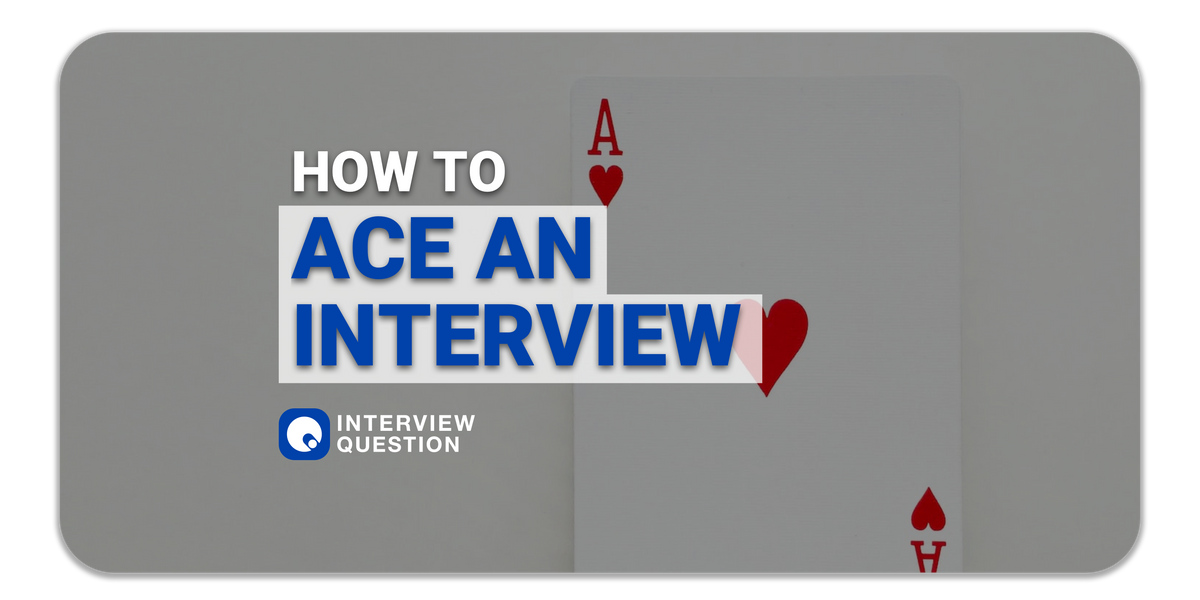How to Ace an Interview: 5 Tips Guaranteed to Impress Your Potential Employer
Make a great first impression | Awareness of the do's and don'ts of body language | What to wear to an interview | Prepare answers and also questions ahead of time | Following up after the interview the right way

If you're like most people, the thought of going on an interview is enough to send you into a mild panic. You worry about what to wear, what to say and how to answer those pesky questions designed to trip you up. But there's no need to stress! By following these 10 simple tips, you'll ace that interview in no time flat.
Make a great first impression
You only have one chance to make a first impression, so it's important to make sure you do it right. Whether you're meeting someone for the first time or going into a job interview, there are some things you can do to ensure that you put your best foot forward.
Here are some tips:
- Smile and make eye contact: This shows that you're friendly and confident.
- Shake hands: Firmly shake the other person's hand while making eye contact.
- Speak clearly and avoid using filler words: This will help you sound more confident and competent.
Awareness of the do's and don'ts of body language
Body language is a form of nonverbal communication, and it consists of body posture, gestures, facial expressions, and eye movements. People can use body language to communicate their feelings and intentions without saying anything.
There are some do's and don'ts when it comes to using body language.
First off, you should try to maintain eye contact with the person you're talking to. This shows that you're interested in what they have to say. You should also avoid crossing your arms or legs, as this can make you seem unapproachable or unfriendly.
Instead, try to keep an open stance with your arms at your sides or gesturing while you talk.
Smiling is another important aspect of positive body language. It makes you appear friendly and approachable. Nodding while someone else is talking shows that you're engaged in the conversation and understand what they're saying. On the other hand, there are some things you should avoid doing with your body language as well. Avoid fidgeting too much, as this can make you seem nervous or uncomfortable. Additionally, slouching conveys disinterest or boredom so sit up straight and pay attention!

What to wear to an interview
When you are going for an interview, it is important to make a good impression. This means that you should take care of your appearance and dress appropriately. What does this mean? Well, first of all, you should make sure that you are well-groomed. This means that you should have a shower, brush your hair, and so on. You don't want to look like you just rolled out of bed!
It is also important to wear the right clothes. What you wear will depend on the company culture and the job itself. For example, if you are applying for a job in a bank, it would be best to wear formal clothing such as a suit or skirt/blouse combo.
However, if the company has a more relaxed dress code then business casual would be fine (e.g., slacks/khakis and button-down shirt for men; blazer with nice pants/skirt and blouse for women). The main thing is to avoid looking too casual - remember, first impressions count!
Prepare answers and also questions ahead of time
When you're going into an interview, it's important to be prepared for the questions you might be asked. This means more than just knowing your resume inside and out - you need to have a clear understanding of what the interviewer wants to know, and how you can best answer those questions.
Here are a few tips on how to prepare for questions ahead of time:
1. Do your research.
Before your interview, take some time to research the company and the role you're applying for. This will help you understand what they're looking for in a candidate, and give you some insight into the kind of questions they might ask.
2. Know yourself.
In addition to researching the company, it's important that you spend some time introspecting before your interview as well. What are your strengths? What are your weaknesses? How can you spin those weaknesses into positive qualities? Knowing these things about yourself will help immensely when preparing right answers to potential interview questions ahead of time.
3. Practice makes perfect.
After doing all this research , sit down with someone else and practice answering common interview questions . This could be a friend, family member, or even just reading aloud from resources like this one. The more times you go over possible answers in yo ur head (or out loud), the better prepared you'll feel walking into your actual interviews
4. Be confident.
On top of everything else , remember that confidence is key in any job interview setting . If you've done yo ur homework leading up to this point, then trust that yourself and let it shine through during your conversations with potential employers.
Following up after the interview the right way
You've done it. You aced the interview and now it's time to follow up. But what is the best way to do that?
First, don't wait too long to send a thank-you note.
It's best to do it within 24 hours of your interview while everything is still fresh in your interviewer's mind. In your note, be sure to mention something specific that you talked about during the interview so they remember who you are. For example, "It was great speaking with you yesterday about XYZ Corporation's plans for expansion." This will help jog their memory when they're reviewing all the candidates.
Next, stay in touch with the employer representative from HR.
Keep connected by ensuring you remain contactable via email, phone. If you miss their call or realised they've emailed you a day ago, go ahead and contact them back. But if they don't reach out, then don't be a pest. If you haven't heard back from the company two weeks after your interview, it's okay to reach out and inquire about next steps or if there is anything else they need from you.
But beyond that, resist the urge to keep checking in every few days.
Begging for updates will only make you look desperate and pushy.If at any point during this process you start getting negative vibes (like your emails are being ignored or short responses turn into one-word answers), take a step back and give them some space—chances are they've already decided on someone else for the job but just haven't had time to inform all the candidates yet. The last thing you want is to become known as "that annoying candidate" who wouldn't stop emailing even after being told multiple times that they didn't get the job!
Wrapping up
If you follow these five tips, you're guaranteed to make a great impression on your potential employer in an interview. First, do your research and be prepared to answer any questions the interviewer may have. Second, dress for success and be well-groomed. Third, be confident and positive, and make sure to smile. Fourth, be a good listener and be sure to ask questions. Finally, be sure to send a thank-you note after the interview. By following these simple tips, you'll be sure to ace your next interview!

